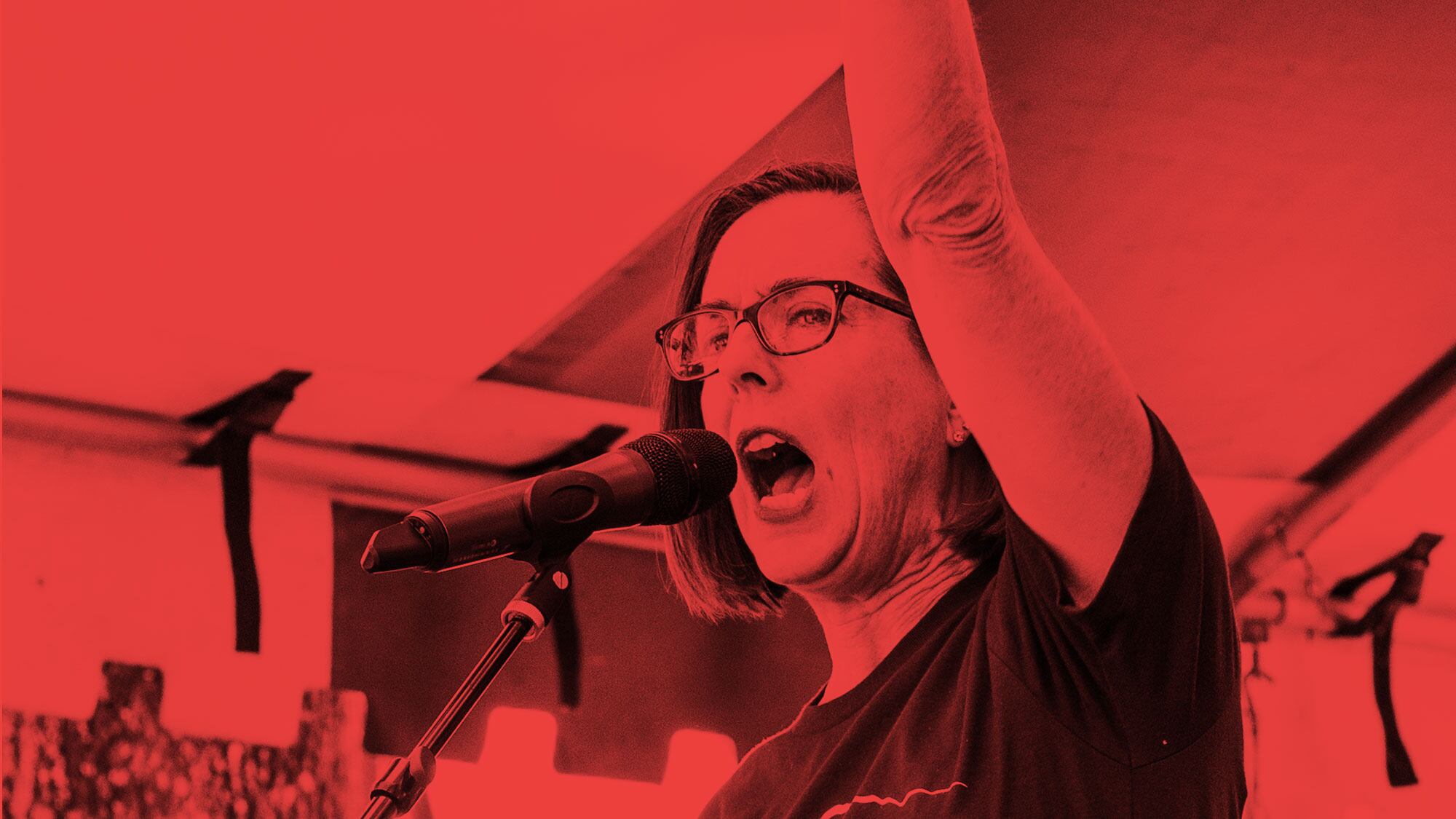For much of 2018, Oregon television viewers have been fed a steady diet of ads highlighting the failure of state government policies—and blaming Gov. Kate Brown. A shadowy group called Priority Oregon paid for the ads.
"They've really tried to set the agenda for the governor's race," says Jim Moore, professor of political science at Pacific University.
The ads, which criticize Brown's lack of oversight of child welfare, public pensions and mental health, are the work of GOP strategists Erica Hetfeld and Tiffany Grabenhorst, who on Feb. 16, 2017, incorporated a nonprofit called Priority Oregon.
Priority Oregon took a page from Our Oregon, the labor-backed political action committee that for the past 13 years has operated as a 501(c)(4) social welfare organization. That designation allows nonprofits to engage in political activity without disclosing their donors.
"We started Priority Oregon to give Oregonians the tools and information they need to demand changes from their elected officials to make Oregon a better place," Hetfeld says. "The government employee unions and environmental groups have been doing this for years, and we were finally fed up with voters only getting one side of the story.
Priority declines to identify its donors.
Despite the secrecy, a few clues point to who's involved. As The Oregonian first reported, Priority Oregon's website was built by a company associated with Entek International, the Lebanon, Ore., manufacturer that has clashed with state regulators and whose executives are big Republican donors.
Many Salem insiders believe timber companies, which reliably support GOP causes and oppose Brown's environmental agenda, are key Priority donors. There's no proof of that, however. Trade associations, including homebuilders, truckers and hospitality providers, have made small contributions ($5,000 to $15,000) through their political action committees. PACs must disclose their activity in state filings, so those contributions are visible while contributions corporations and individuals make directly are not.
Records show Priority Oregon has spent over $1.5 million, and nobody except Priority knows where it came from. The benefit of the 501(c)(4) status, of course, is that donors can give secretly.
"With the exception of Nike, most corporations want to keep their names out of politics," says Pacific's Moore. "And they want to be able to do business with whoever wins."

Why Is an Anti-Abortion Measure on the Ballot in America's Most Pro-Choice State?
Why is Phil Knight backing both Colin Kaepernick and Knute Buehler?
Why was it so easy for Republicans to crowd the ballot with measures?
Supporters of Measure 104 say it's about fiscal discipline, but what's the real issue?
Measure 103 will ban grocery taxes. What else will it do?
Why does housing in the ''Burbs depend on Portland voters?
Who is not on the ballot but has the most at stake this November?
Don't utilities already do the things the Portland Clean Energy Measure proposes to do?
